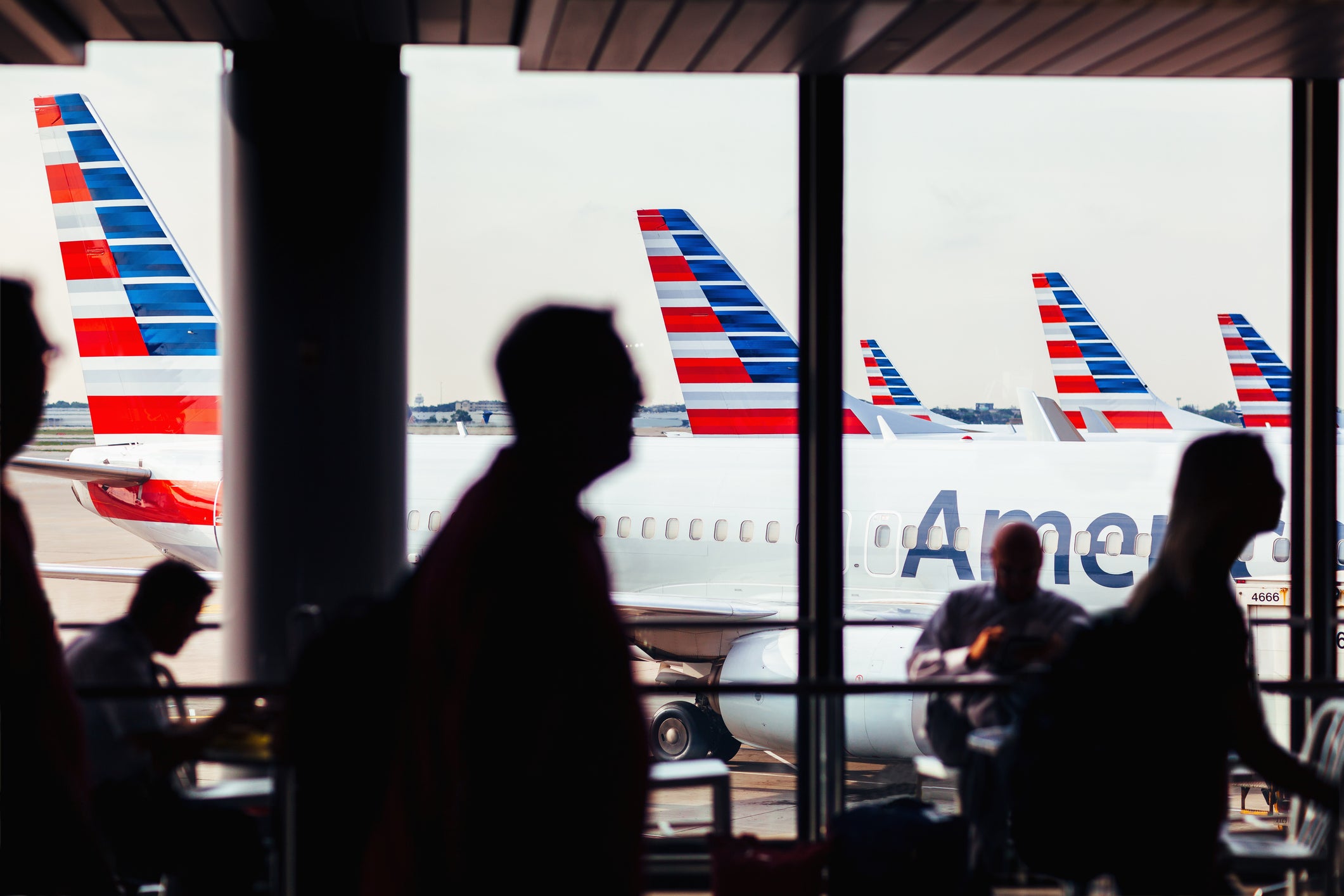What are ‘gate lice’ and how does American Airlines plan to control them?
Passengers who bug airline staff by breaking boarding protocol will be met with an alarm

Your support helps us to tell the story
From reproductive rights to climate change to Big Tech, The Independent is on the ground when the story is developing. Whether it's investigating the financials of Elon Musk's pro-Trump PAC or producing our latest documentary, 'The A Word', which shines a light on the American women fighting for reproductive rights, we know how important it is to parse out the facts from the messaging.
At such a critical moment in US history, we need reporters on the ground. Your donation allows us to keep sending journalists to speak to both sides of the story.
The Independent is trusted by Americans across the entire political spectrum. And unlike many other quality news outlets, we choose not to lock Americans out of our reporting and analysis with paywalls. We believe quality journalism should be available to everyone, paid for by those who can afford it.
Your support makes all the difference.Air passengers tend to fall into two categories once they reach the departure gate: those sat down with an “it won’t leave without us” mentality and those who hover by the desk with their hand luggage in a bid to board first.
Airlines are now making moves to crack down on the latter – or “gate lice” as they are known by aviation insiders.
The International Air Transport Association (Iata) highlighted the havoc that can be caused by “skip boarding” (the official term) during an industry event this week.
According to The Telegraph, Nick Careen, IATA’s head of operations and safety, said: “It’s a term used when you see people queueing in their own line and doing it on purpose. It’s skipping the boarding process.
“When they get to the front it’s sometimes easier just to let them through rather than turn them away.”
American Airlines is one airline trialling new technology to enforce boarding groups and cut queue jumping at the gate.
In trials at Albuquerque, Tucson and Washington airports, passengers scanning their boarding pass before their group number is called will now be met with an alarm sound.
The computer will also display an alert message for gate agents, who can then instruct pushy passengers to stand aside until their group is called to board.
Airports often encounter long boarding queues as passengers attempt to be the first in the cabin and secure coveted space in the overhead bins – regardless of whether their boarding group number has been called.
American Airlines said the move intended to “improve the boarding experience” and “ensure customers receive the benefits of priority boarding”.
A total of ten groups, ranging from from ConciergeKey members to basic economy, will usually start boarding one by one in the 30 to 50 minutes before a flight’s scheduled departure using a priority lane and a general boarding line, which will now have new scanning technology.
Staff will be able to clear the notification and allow passengers to board early if there is a valid reason.
A spokesperson for American Airlines said: “We are in the early phase of testing new technology used during the boarding process. The new technology is designed to ensure customers receive the benefits of priority boarding with ease and helps improve the boarding experience by providing greater visibility into boarding progress for our team.”
For more travel news and advice, listen to Simon Calder’s podcast
Join our commenting forum
Join thought-provoking conversations, follow other Independent readers and see their replies
Comments